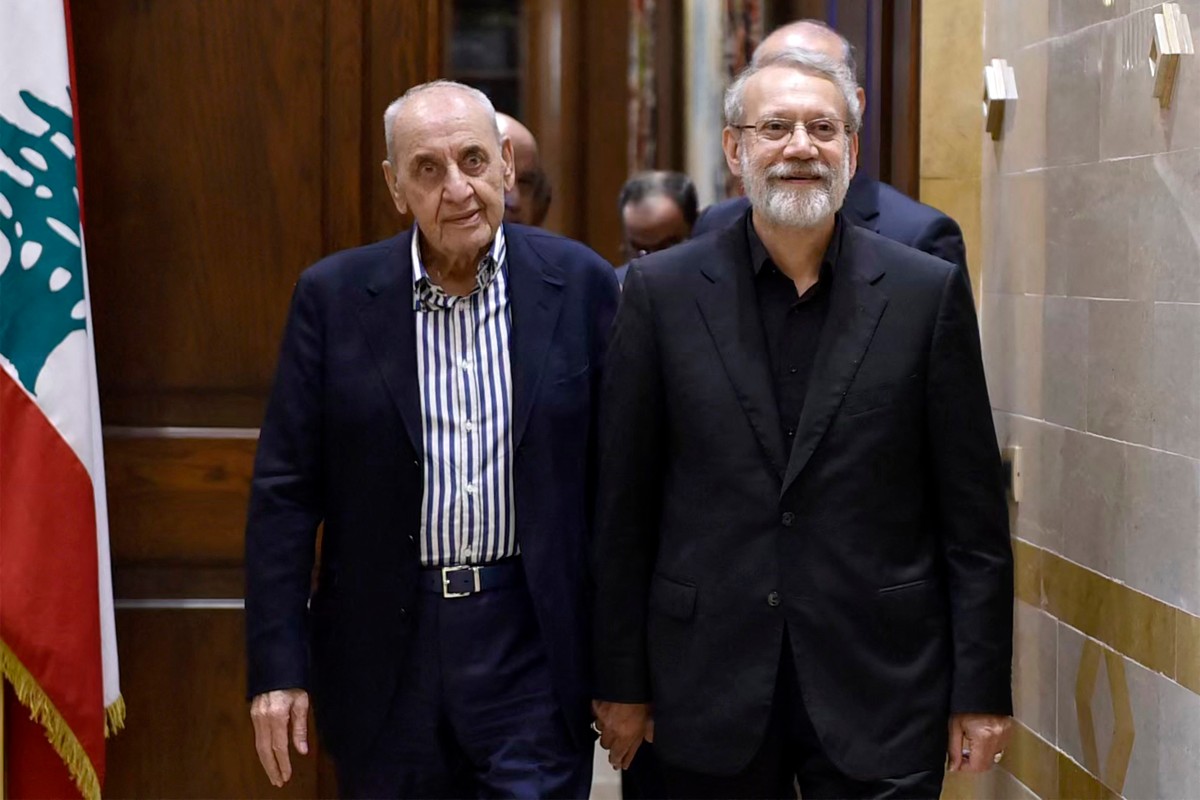Lebanon’s political scene no longer tolerates shades of gray. It is either a single state with one army and one weapon, or a state-within-a-state dragging the country into chaos. The visit of Ali Larijani, Secretary of Iran’s Supreme National Security Council, to Beirut was not a mere diplomatic protocol. It was a blunt declaration that "Hezbollah"’s arsenal is not a Lebanese decision, but a file tucked in Tehran’s pocket. At a moment when the Lebanese aspire to reclaim their sovereignty, the Iranian envoy came to remind them that the guardianship of weapons is still intact—nourished by a weakened state, the complicity of some, and the silence of others.
A Visit as a Political Warning, Not Diplomacy
Larijani’s stop in Beirut, marked by modest receptions from "Hezbollah" supporters, carried a clear message: the decision over weapons is made beyond Lebanon’s borders. The visit followed repeated Iranian statements rejecting any move to disarm "Hezbollah", at a time when the Lebanese government had adopted a decisive sovereign choice: placing all weapons under state authority. For many Lebanese, the government’s decision represents a step toward recovering a hijacked state. For "Hezbollah", however, it is framed as an existential threat, fully aligned with Tehran’s agenda that stretches well beyond Lebanon.
Iran’s Denial Narrative
Larijani told the press that Iran “does not interfere in the affairs of other countries.” Yet facts on the ground dismantle this claim: "Hezbollah"’s orchestrated reception, along with Tehran’s open declarations that "Hezbollah"’s arsenal is part of its regional strategy, are living proof of a complete political guardianship. This is not “help” to Lebanon—it is the confiscation of its sovereignty, turning it into a bargaining chip in a tired regional power game.
Messages of Sovereignty from Aoun and Salam
President Joseph Aoun stressed that any partnership with foreign powers must be built on respect for sovereignty, asserting that Lebanon cannot be reduced to a single sect or party. Prime Minister Nawaf Salam directly confronted Larijani, rejecting Iranian officials’ statements as a blatant violation of diplomatic norms. He reaffirmed that the decision to place all weapons under state control “has been a Lebanese pledge since the Taif Accord.” These positions are a test of Lebanon’s ability to stand firm against external interference.
Former Allies Step Away
Even "Hezbollah"’s former allies are reassessing their positions. Gebran Bassil, once a strategic partner, declared outright that "Hezbollah"’s “deterrence function has collapsed” after its unilateral participation in the latest war. His shift underscores the narrowing political space available to "Hezbollah", showing that the group’s arsenal has lost its national cover and is now merely an instrument of foreign policy.
History teaches that “moving from the rifle to politics requires far more courage than fighting.” Perhaps it is time for "Hezbollah" to show that courage, before realizing that its surplus of force may turn into a burden rather than a guarantee. No state can succeed if its weapons are fragmented, if its agendas are scattered across foreign capitals, and if its citizens’ loyalties are split between the state and a state-within-the-state.
From Resistance to National Burden
Since the 1980s, "Hezbollah" carried the banner of resistance against Israel. But after the liberation of 2000, the rifle shifted from defense to an instrument of domestic dominance. Today, amid economic collapse and diplomatic isolation, the weapon has ceased to be a shield—it has become a liability that drags Lebanon into conflicts it cannot afford.
Why then does "Hezbollah" warn of sedition while fueling its flames? Why frame disarmament as suicide while dragging itself toward ruin? And why not admit that the question of arms arose under a “slip of history” during nearly three decades of Syrian tutelage? The new era, inaugurated at the dawn of this year, has placed the building of a sovereign, free, and unified Lebanon at the top of its priorities—both in the Presidential declaration and the ministerial statement.
The Inevitable Choice
The equation is clear: either "Hezbollah" surrenders its arms and joins political life under the state’s authority, or it continues down the path of subservience to Tehran—leading to deeper isolation, sharper divisions, and perhaps even internal confrontation.
History has shown that true resistance ends in one of two ways: either with victory that builds a strong state, or with decline into a cancer that devours the very people it once claimed to defend. Today, "Hezbollah" faces only one path if it wishes to preserve Lebanon: to become a Lebanese political party, not a regional proxy.
Ultimately, "Hezbollah"’s arsenal is no longer a debatable issue to be postponed or finessed. It has become the dividing line between a Lebanon of statehood and a Lebanon of militias. Either legitimacy prevails, or the entire nation falls hostage to a rifle raised only by permission from beyond the border.
Please post your comments on:
[email protected]
 Politics
Politics







